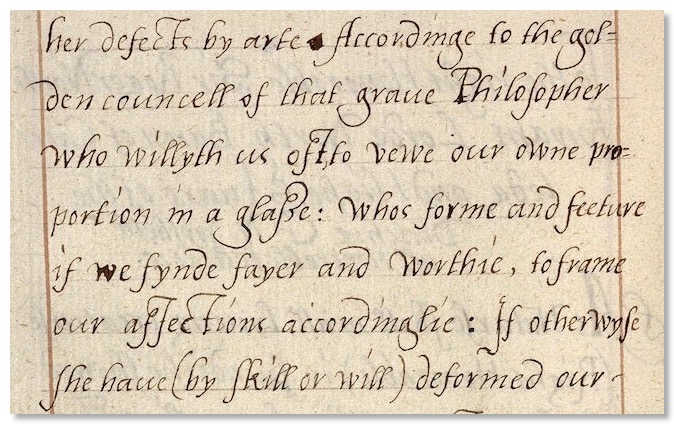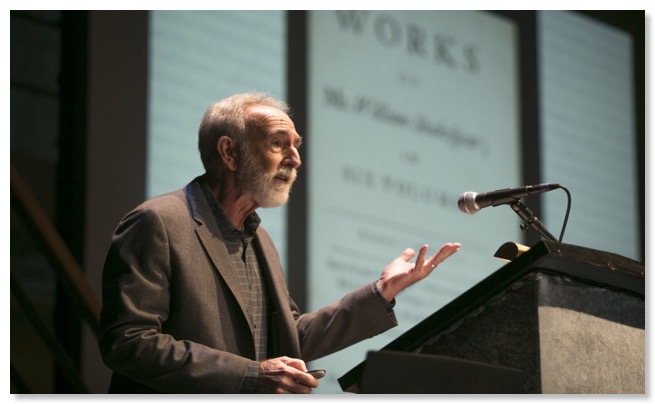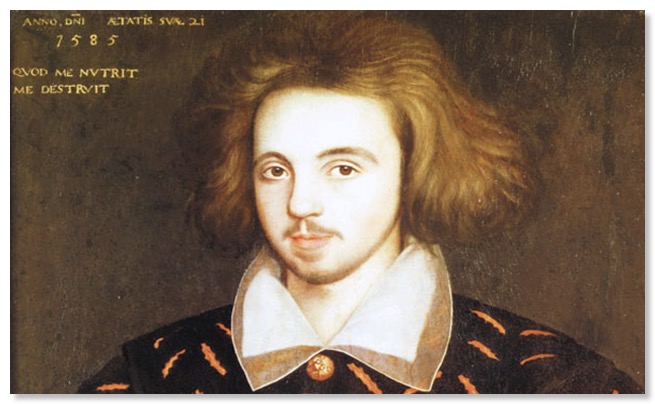Authorship
It's Time, Once Again, to Suggest that Shakespeare was not Shakespeare...
March/07/2018 13:05

Every six months to a year or so, a claim is made that Will Shakespeare, of Stratford, did not write the plays we generally associate with him. This article is slightly different, since it leaves that aspect of the Shakespeare debate to the end (with a pretty good refutation of the theory that "Shakespeare is not Shakespeare".) The first part of the article suggests that a 1576 copy of a French collection of tragedies (François de Belleforest's Histoires Tragiques) was not only used by Shakespeare for inspiration (specifically, Hamlet), but also has some of his annotations. As always, the debate will rage on!
Writing While Under the Influence...
February/12/2018 12:32

Shakespeare did not write in a vacuum, and scholars today confirm that he was heavily influenced by Holinshed's Chronicles, and Plutarch's Lives (properly titled Lives of the Noble Greeks and Romans.)
Now, an amateur and deeply capable scholar — Dennis McCarthy — has, in collaboration with Professor June Schlueter, ferreted out what is likely to prove a powerful third influence on Shakespeare, the writing of one of Queen Elizabeth I's ambassadors to Sweden, George North. An obscure diplomat until now (his Wikipedia entry starts onFebruary 8, 2018 — 4 days ago!) he had an elegant turn of phrase that clearly caught Shakespeare's attention and imagination. The book that sparked Shakespeare's — and now our — interest, was A Brief Discourse of Rebellion & Rebels. Read the New York Times article here.
We Almost Lost 16 Plays...
November/01/2016 16:46

George M. Bodman Professor of English David Kastan speaks at Drew
Yale scholar David Kastan speaks at Drew University, and explains how the first folio saved at least 16 of Shakespeare's plays from obscurity. A close call. More.
Henry VI, Part 1 By W. Shakespeare... and Christopher Marlowe.
October/25/2016 16:34

From Wikipedia: A portrait, supposedly of Christopher Marlowe. There is in fact no evidence that the anonymous sitter is Marlowe, but the clues do point in that direction. Marlowe was 21 years old in 1585, when the painting was made. He was also the only 21-year old student at Corpus Christi, where the painting was later found.
New scholarship from the Oxford University Press suggests that Shakespeare had help from Christopher Marlowe when writing Henry VI, parts 1, 2 and 3. Corpus analysis helps solve the puzzle! More.